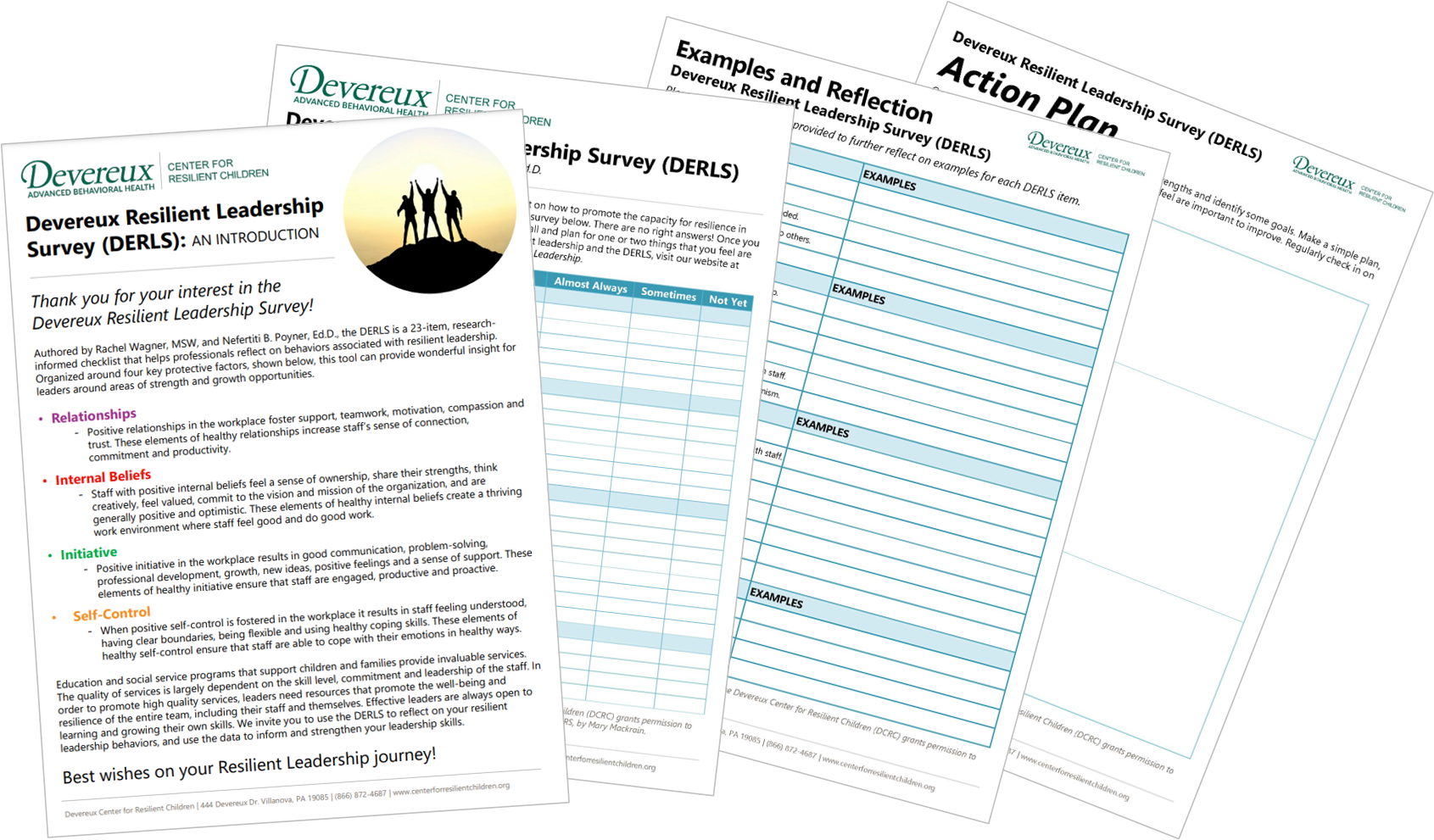August 14, 2023
In last week’s blog post, we talked about the behaviors of a resilient leader. We also mentioned that we offer a free tool – the Devereux Resilient Leadership Survey (DERLS) – to help you reflect on those behaviors, to see where you are and hopefully reflect on your strengths and areas for growth.
Now that you know the behaviors of a resilient leader, let’s talk about what your workplace can look like should you display those behaviors. What does it look like when you focus on those protective factors of relationships, internal beliefs, initiative and self-control within your team?
Relationships in the Workplace
Positive relationships in the workplace foster support, teamwork, motivation, compassion and trust. These elements of healthy relationships increase staff’s sense of connection, commitment and productivity. Staff will call upon these relationships to deal with challenges, celebrate successes and be more resilient.
Internal Beliefs in the Workplace
Staff with positive internal beliefs feel a sense of ownership, share their strengths, think creatively, feel valued, commit to the vision and mission of the organization, and are generally positive and optimistic. These elements of healthy internal beliefs create a thriving work environment where staff feel good and do good. Staff will call upon these internal beliefs to help them stay centered, keep on during challenging times and be more resilient.
Initiative in the Workplace
Positive initiative in the workplace results in good communication, problem-solving, professional development, growth, new ideas, positive feelings and a sense of support. These elements of healthy initiative ensure that staff are engaged, productive and proactive. Staff will call upon their initiative to think outside the box, stay positive and be more resilient.
Self-Control in the Workplace
When positive self-control is fostered in the workplace, it results in staff feeling understood, having clear boundaries, being flexible and using healthy coping skills. These elements of healthy self-control ensure that staff are able to cope with their emotions in healthy ways. Staff will call upon their self-control to keep their cool during tough times, go with the flow during chaotic times and be more resilient.
Ultimately, by focusing on these four areas, you are creating a culture of resilience within your team. Connecting creates a culture of resilience (relationships). Nurturing strengths creates a culture of resilience (internal beliefs). Enjoying positive moments creates a culture of resilience (initiative). Healthy coping creates a culture of resilience (self-control). All of this is how we differentiate traditional leadership and resilient leadership. We see traditional leadership as a means to provide guidance and foster fellowship, which is very important! We also believe in resilient leadership, which is leadership as a means to foster resilience in others and to build a culture of resilience.



